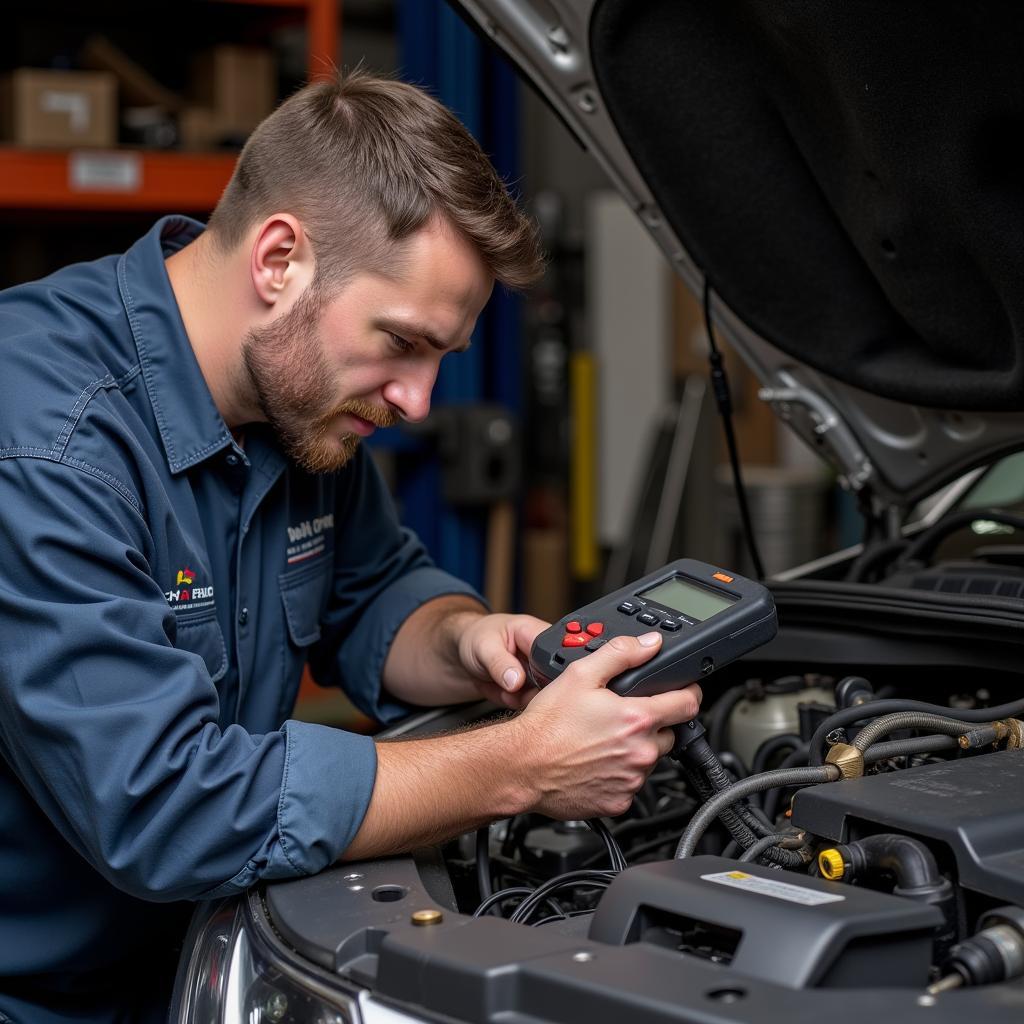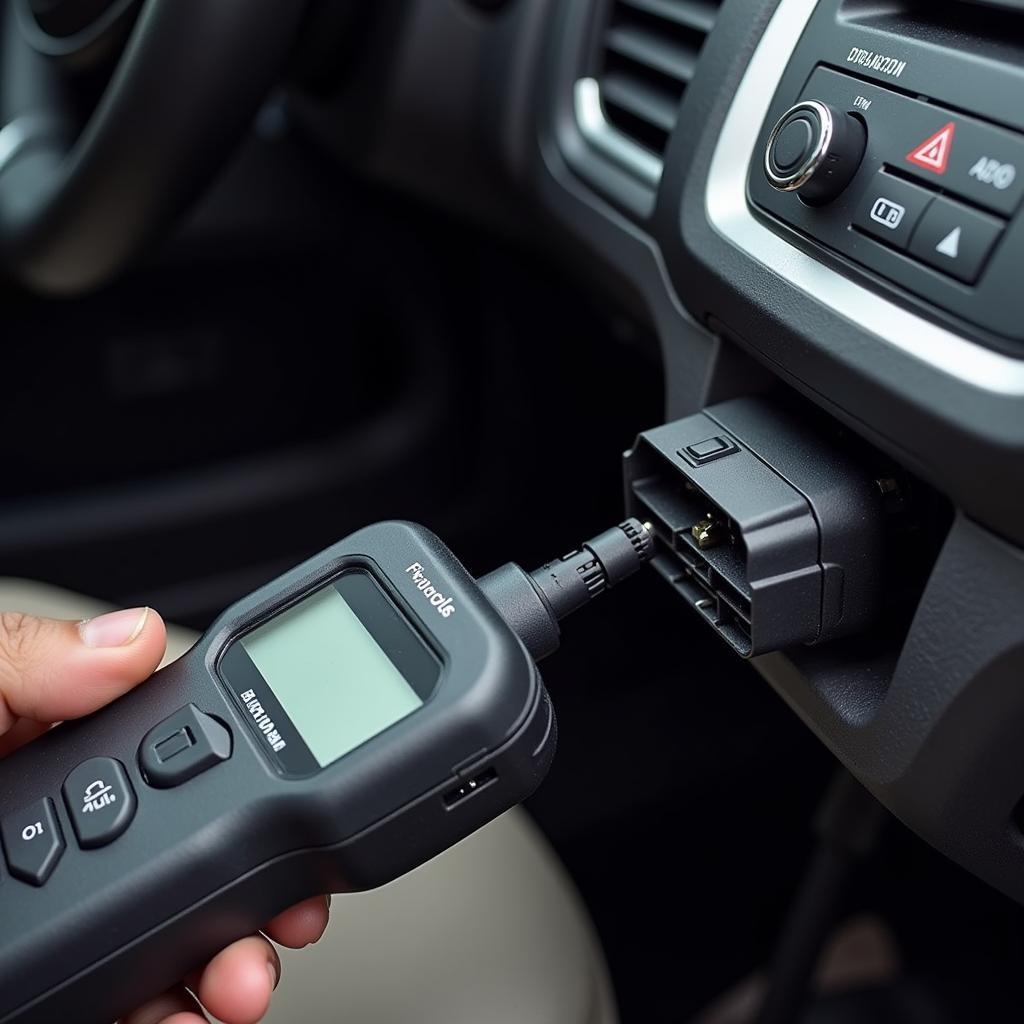Purchasing Second Hand Car Diagnostic Equipment can be a smart financial decision, especially for new mechanics or smaller workshops. However, it’s crucial to approach this process with caution and knowledge to ensure you’re investing in reliable tools that meet your needs. This guide will walk you through everything you need to know about buying used car diagnostic equipment.
Factors to Consider Before Buying Second Hand Car Diagnostic Equipment
Before you start browsing listings, take the time to evaluate your specific requirements and budget.
Define Your Diagnostic Needs
Consider the makes and models of vehicles you primarily service. Some diagnostic tools specialize in certain brands, while others offer broader coverage. Determine the functionalities crucial for your work, such as:
- Basic functions: Reading and clearing error codes, displaying live data.
- Advanced functions: Programming, coding, component activation, ECU reprogramming.
- Vehicle compatibility: Ensure the equipment supports the protocols and communication standards used in your target vehicles.
Set a Realistic Budget
Used equipment can significantly reduce costs, but factor in potential repair or upgrade expenses. Determine a budget range and explore options within that limit. Remember, cheaper isn’t always better.
Research Brands and Models
Focus your search on reputable brands known for quality and durability. Explore online reviews, forums, and industry publications to identify models with a track record of reliability.
Where to Find Second Hand Car Diagnostic Equipment
Finding the right equipment at the right price involves exploring various sources:
- Online Marketplaces: eBay, Amazon, and specialized automotive tool websites offer a wide selection.
- Forums and Online Communities: Mechanic forums and social media groups dedicated to automotive tools can provide valuable insights and leads.
- Local Automotive Tool Suppliers: Some suppliers might offer used or refurbished equipment.
- Auctions: Government surplus auctions or specialized equipment auctions can be a good source for discounted tools.
 Used Car Diagnostic Equipment Online
Used Car Diagnostic Equipment Online
Inspecting Second Hand Diagnostic Equipment: Key Checks
Thoroughly inspecting any used equipment before purchasing is crucial to avoid costly surprises later:
Physical Condition
- Cables and Connectors: Look for signs of wear, fraying, or damage. Ensure connectors are clean and free of corrosion.
- Housing: Check for cracks, dents, or loose parts, which could indicate improper handling or internal damage.
- Screen: Inspect for scratches, dead pixels, or dimming. A clear and functional screen is crucial for accurate readings.
- Buttons and Keypad: Test all buttons and ensure they respond correctly. A worn-out keypad can be a sign of heavy use.
Software and Functionality
- Operating System: Verify the installed software version and check for available updates. Outdated software might have compatibility issues with newer vehicles.
- Diagnostic Capabilities: Connect the equipment to a vehicle and run a scan. Check if it can read and clear codes, display live data, and perform the specific functions you require.
- Data Logging and Reporting: If data logging is important for your work, test this functionality and ensure reports are generated correctly.
 Mechanic Inspecting Diagnostic Scanner
Mechanic Inspecting Diagnostic Scanner
Tips for a Safe and Successful Purchase
- Ask for Proof of Ownership and Service History: This helps verify the legitimacy of the seller and provides insights into the equipment’s usage.
- Request a Demonstration: A hands-on demonstration allows you to assess the equipment’s functionality and compatibility with your needs.
- Negotiate the Price: Don’t hesitate to negotiate, especially if you identify any flaws or if the equipment requires software updates.
- Get a Warranty or Guarantee: While not always possible with used equipment, inquire about any warranty options the seller might offer.
- Consider Refurbished Options: Reputable sellers offer refurbished equipment that undergoes testing and repairs, providing a balance between cost and reliability.
Common FAQs about Second Hand Car Diagnostic Equipment
Q: Can I update the software on second hand diagnostic equipment?
A: It depends on the model and manufacturer. Some equipment allows software updates, while others might have limitations. Verify this with the seller or manufacturer before purchasing.
Q: What are some red flags to watch out for when buying used equipment?
A: Be wary of sellers who avoid providing detailed information, refuse demonstrations, or offer unbelievably low prices. These could be signs of fraudulent activity or equipment in poor condition.
Q: Is it worth buying very old diagnostic equipment at a steep discount?
A: While tempting, outdated equipment might not support newer vehicle models or offer the latest functionalities. Consider the long-term value and compatibility before making a decision.
 Car Diagnostic Equipment Connection
Car Diagnostic Equipment Connection
Conclusion
Investing in second hand car diagnostic equipment can be a cost-effective solution for many automotive professionals. By understanding your needs, researching thoroughly, and inspecting carefully, you can find reliable tools that serve you well. Remember, a well-informed purchase is a step towards a successful and efficient automotive service business. For those seeking more tailored information or assistance with car diagnostic services, explore our website further or reach out to us – we’re here to help!
Don’t forget to check out our resources on car diagnostic services near me and diagnostic equipment wont connent to car for additional guidance and support. We also offer a handy car diagnostic screensaver to keep your computer looking sharp while you work.
Need further assistance? Contact our 24/7 customer support team via WhatsApp: +1(641)206-8880, Email: [email protected]. We are here to guide you.

Leave a Reply